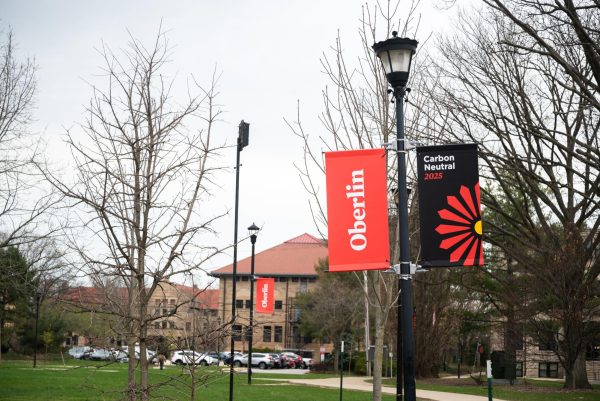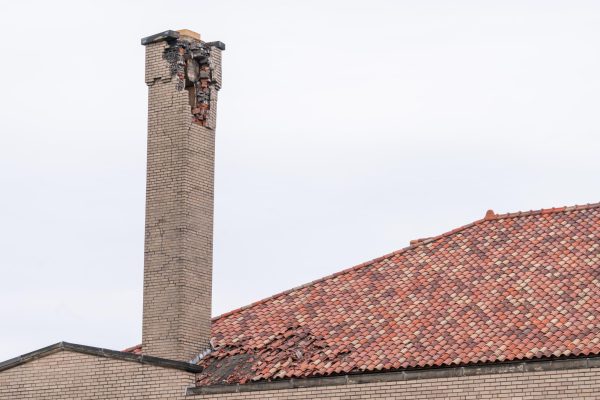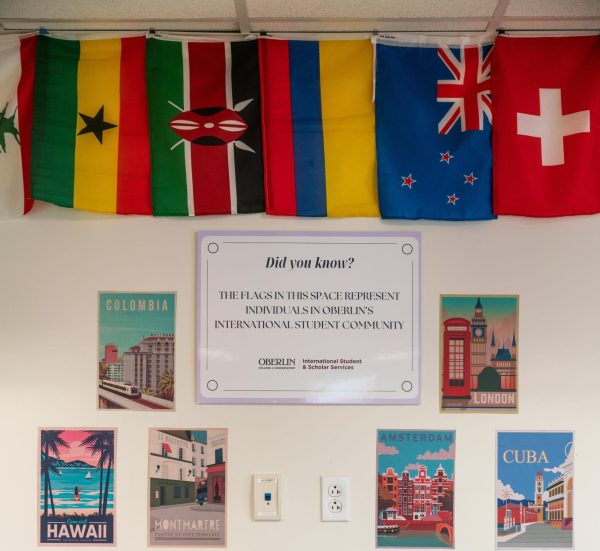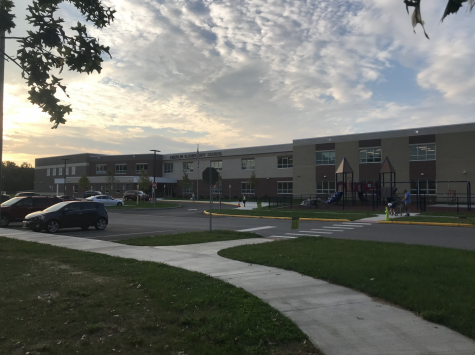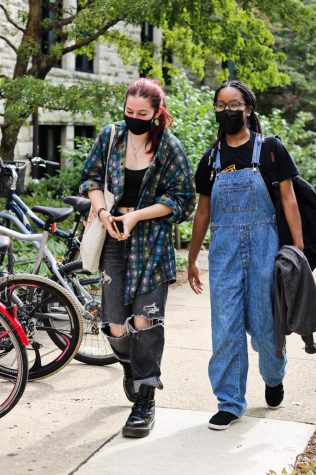College Faces Food Delivery, Testing Challenges Amid National COVID Spike
As students return from winter break, the College continues to administer COVID-19 testing and care for students in isolation. With 176 students, faculty, and staff testing positive for COVID-19 since campus reopened on Jan. 2, the Office of the Dean of Students, in collaboration with AVI Foodsystems, coordinated a volunteer meal delivery program, but problems with food delivery and testing delays still remain.
The critical days of the program were from Jan. 4–8, when a large number of students tested positive immediately upon returning to campus after break. However, the program will continue to operate as long as there are students in isolation.
The College put out a call for faculty and staff volunteers to assist with AVI’s delivery program, anticipating the need for extra hands on deck due to the looming nationwide staffing shortages and the highly contagious Omicron variant.
“We were really worried about our staff’s availability — especially with staff themselves possibly testing positive for COVID — being able to meet that initial demand,” said Thom Julian, assistant dean and director of community life and standards. “We’ll need to reevaluate when it comes to the beginning of Winter Term, the beginning of spring semester. It’s really an equation based on Omicron, timing of the semester, and Ohio.”
Julian, who volunteered to participate in the meal delivery program, lauded AVI for quickly building a food delivery system to cater to student’s additional needs generated by the surge of Omicron.
“I think AVI really saw the influx, they responded, and from what I saw … I think they really have stood up a good process that was hard at first, but I think they’ve really gotten it down,” Julian said. “I think it’s a hard time for everybody, and I think our staff are really stepping up to the plate to volunteer.”
Similarly, Assistant Dean of Students Monique Burgdorf, another volunteer who adjusted her schedule to help deliver food to students in isolation, noted that AVI adapted admirably to ongoing staffing challenges.
“AVI wouldn’t be asking for help unless they were literally desperate,” Burgdorf said. “And it’s not like Oberlin is not immune to what’s going on in the world in terms of the job market right now — they can’t find people to do things. But I was actually really impressed by how organized the process was. It was the managers who were out there delivering food with us — it wasn’t the workers.”
Burgdorf also said the volunteer program was set up to provide extra help to AVI staff, but that the existing team would still maintain a functioning program without faculty and staff assistance.
“[If they hadn’t had volunteers] it would have just taken them a lot longer,” Burgdorf said. “On the night we delivered, I feel like there was like 22 or 23 meals that had to go out. It’s not so much a difficulty thing — it’s a logistic thing. There’s North Campus, there’s South Campus, then you have to get into the dorms and then find [the room]. So obviously, [AVI] would have done it, it’s just that the meals probably would’ve gotten delivered at like 7:30, 8 o’clock at night, which kind of sucks if you’re hungry.”
Despite the College’s quick reflexes in addressing the obstacles presented by the rise in COVID-19 cases on campus, there are still outstanding concerns to iron out in its testing and isolation program.
Conservatory fourth-year Michael Yang-Wierenga tested positive on Dec. 31 and had to return to his off-campus house to quarantine during his illness. Yang-Wierenga told the College about his positive test and sent an email to the College on Jan. 2 inquiring about having food delivered to him. When no one from the College replied with adequate information, Yang-Wierenga texted the AVI help line and received an automated response.
“It’s basically this unintelligible reply … saying ‘We’ll be in touch shortly,’ with a link to this website that did not answer my question,” Yang-Wierenga said. “I had a specific question — I was asking, ‘Do they deliver meals to off-campus housing?’ and I never got a reply. The next day I asked, ‘Am I not getting food delivered?’ … It just gave me what seemed like another automated message, saying what times they deliver food. It was clear I wasn’t talking to a person. [After that,]… I just gave up and ate corn dogs.”
Yang-Wierenga said that throughout his six-day isolation, the College never delivered a meal.
College second-year Sequoia Jacobson received a routine test at Hales Gymnasium on Jan. 3 after returning to campus, but did not receive the results of his test until Jan. 10 — a full week later. As so many days had elapsed, and other close contacts of his had tested negative, Jacobson went on a road trip, only after which did he receive a call informing him of his positive results.
“On the car ride back, I get the call,” Jacobson said. “The nurse at Hales was like, ‘Yeah, sorry, the lab’s really been backed up, but your test was positive. You should be getting an email from ObieSafe and they’ll tell you how long to isolate. But since your results are a week later than your test was, you might not even have to isolate.”
While none of Jacobson’s close contacts have tested positive, the late notice proved to be stressful for those he had been in contact with during the period between his test and his result.
“I mean, it was a bit of a scare,” Jacobson said. “It was a whole moment because immediately, I was thinking about the people I was with… but luckily everyone else that I saw was fine.”
Although the College is still adapting its COVID-19 isolation program, which has resulted in some obstacles along the way, faculty and staff remain eager to help care for the student community.
“I just feel like sometimes when things get hard at Oberlin, it can be nice to be a part of something that isn’t about you, or about your individual feelings,” Burgdorf said. “It’s about something that is helping to do good. It can just give you a slightly different perspective.”


